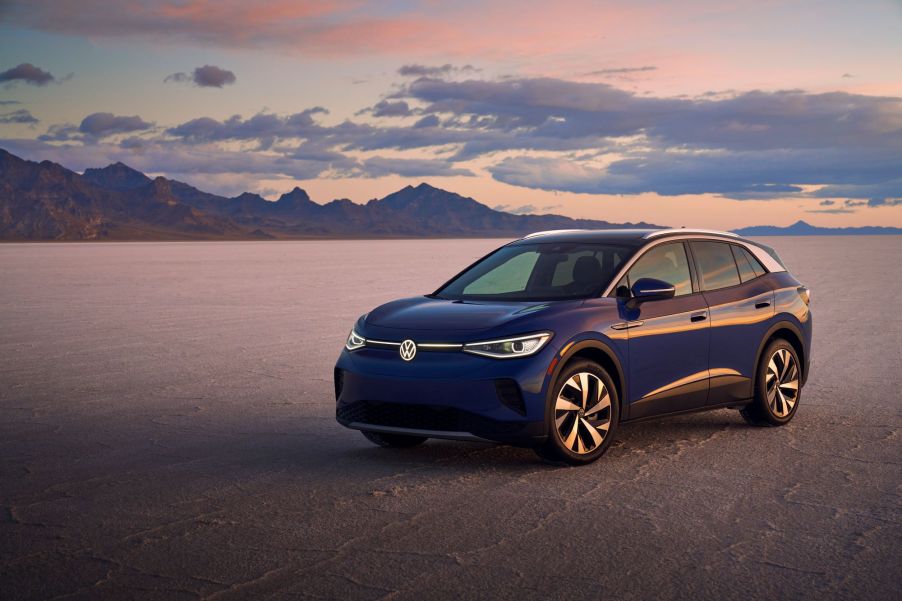
Tesla’s Success Doesn’t Prove Americans Are All in on EVs, NADA CEO Claims
Every year has seemed like the end of Tesla’s bull run. After all, the manufacturer that built so much hype in the late 2000s and early 2010s surely has to crash sometime, right? If that’s the case, don’t tell Elon Musk. Under his management, Tesla is surging and finally hitting profitability markers. In 2021, Tesla is on pace to sell more vehicles than they did in 2016, 2017, and 2018 combined. Tesla stock is through the roof, even as Musk’s eccentric leadership triggers the occasional SEC investigation. Does this mean that the electric vehicle (EV) is catching on across the country, or is Tesla simply an outlier? The president and CEO of NADA recently shared his opinion.
Non-Tesla EV options in America

Tesla isn’t the only EV automaker in America, but they’re the only one to succeed at such an impressive level. Other manufacturers have run into a handful of issues that prevented widespread adoption up to this point. However, the Toyota Prius existed long before any of Tesla’s models, and hybrid sedans in the early 2000s went a long way toward establishing EVs as a viable option. Now, seemingly every automaker is getting in on EVs, such as Volkswagen rolling out its ID. series and Stellantis planning for all of its brands’ vehicles to be EVs by the end of the decade.
Still, with Musk dominating the headlines, it’s difficult to tell if people are excited about EVs themselves or can’t stop talking about the iconoclast CEO. For Tesla’s bottom line, it doesn’t matter. Its EVs are still selling as fast as they can produce them.
NADA CEO Stanton’s statement on Tesla’s success
In a piece for the National Auto Dealers Association blog, NADA CEO and President Mike Stanton dove into Tesla’s place in the market and what the rest of the manufacturers need to do to catch up. “What Tesla has proven,” Stanton writes, “is that you can sell Teslas very successfully in America to a certain, and pretty small, subset of our population.” He’s correct that Tesla buyers are a niche subset, and some of them are even proud of the high prices they’ve paid. That sentiment is unlikely to carry over to the greater population as they consider purchasing EVs for obvious reasons.
Also, in the piece, Stanton takes some time to explain how auto dealers are critical to EV adoption. Tesla’s luxury boutique model has removed most of the dealership process from car shopping, but Stanton argues that this is the exception and not the rule. Tesla has carved out a niche in the market, appealing to people happy to complete the entire purchasing process online, but this isn’t the case for most car buyers.
“Dealers are absolutely essential in this world of new EVs,” according to Stanton. “Because once you get past luxury vehicles and into the mass market, you will not achieve broad acceptance of any product, regardless of how it’s powered, by rejecting the attributes of the sales and service process.” Perhaps he’s biased as the National Auto Dealers Association CEO, but Stanton raises some good points.
The future of dealership and EV purchases
Dealerships already have a century of infrastructure and know what works. Aside from some early EV adopters, Americans are used to walking into a dealership, test driving a model, and getting answers to their questions. As more traditional manufacturers attempt to break into the EV market, they will need to provide a more traditional dealership experience. Selling EVs directly to the consumer is a great plan for tech-savvy Tesla customers, but as the rest of the world moves toward electric vehicles, they’re going to need live-in-dealership help.


